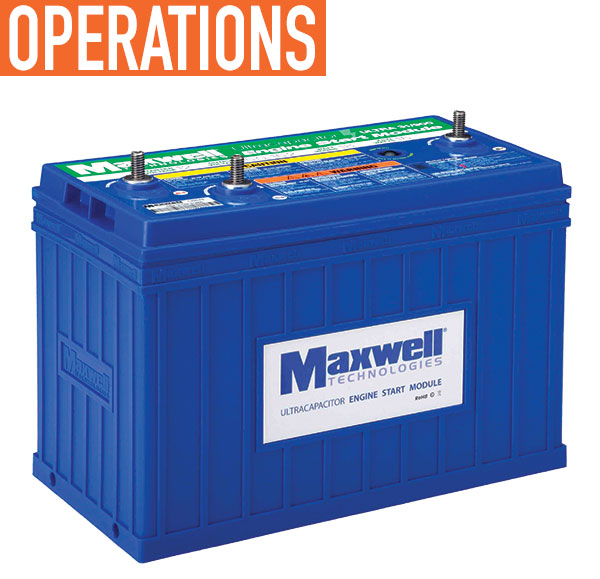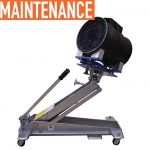Every work truck serves a specific role and function in its day-to-day use, whether as a tool truck for a public utility or a four-axle rock pump for a major design and build construction company. They serve a variety of functions, but high on the list of needs from any work truck is its reliability; it must start when needed. This includes cold Monday mornings at five o’clock, hot days when it’s above 90 degrees, and on the jobsite after a long period of using radios, lights, winches, computers, and lift-gates. Failure to start in any of these situations results in a jump-start. Jump-starts are often costly, time-consuming, and almost always negatively affect the job at hand.
STARTING CONDITIONS
In many instances, failure to start is caused by a battery that isn’t operating optimally due to external factors, including extreme temperatures and an increase in electrical loads. To overcome these common situations, batteries can work with ultracapacitors, a solution that provides short bursts of high-starting power.
Extreme temperatures: Batteries operate best in temperatures that are near 72 degrees Fahrenheit; they temporarily become weaker as temperatures decrease. A weaker battery is less reliable and can result in engine-start failure. For colder climate areas, a sudden cold front can prevent an engine from starting, particularly if the truck hasn’t been started since Friday and it’s now Monday morning. More than just cold temperatures can affect a battery, however. Hot weather can affect battery performance and leave drivers in a tough spot. Sustained temperatures above 90 degrees Fahrenheit can decrease a battery’s lifespan, costing time and money to replace batteries when trucks should be on the jobsite.
Electric load demand: The good news is today’s work trucks are more advanced than ever before. However, the proliferation of electronic accessories has started affecting battery run time and availability on the jobsite. Examples of these accessories are portable computers, lighting, radios, cell phones, GPS systems, telematics, and video camera and monitoring systems. While these accessories provide a great increase in productivity, trucks frequently don’t leave the upfitter with the battery power necessary to crank their engines after a long day or night of running such accessories with the engine off. Too many accessories can discharge the batteries to a point where they can’t start the truck, meaning an on-the-job jump-start is needed.
CUE THE ULTRACAPACITOR
While it’s impossible to prepare for every situation, trucks can be better equipped by combining ultracapacitors with batteries. With uncontrollable temperatures and an increase in electrical load accessories, battery performance can be limited. To make up for this, batteries can rely on ultracapacitors as a solution to provide extra power, specifically for starting an engine even when temperatures are as low as -40 degrees Fahrenheit.
Because ultracapacitors recharge quickly, they’re able to provide quick power bursts to start the engine in situations where the batteries are too discharged to do so on their own. With the ability to provide hundreds of thousands of start-cycles, compared to batteries’ thousands of start-cycles, ultracapacitors are a long-lasting starting solution. By combining ultracapacitors and batteries, overall engine-starting reliability is increased, and work trucks are able to achieve their full potential—starting reliably in the morning and again when it’s time to leave the jobsite.
ABOUT THE AUTHOR:
Mark Burnside joined Maxwell Technologies in 2008 as senior manager of Program Management, responsible for managing cross-functional teams in the development of ultracapacitor products from concept through production release. He contributed to the development of the Engine Start Module (ESM) product from its inception and was promoted to senior product manager, Engine Starting, in 2013. Mark is a member of the Electrical Generating Systems Association (EGSA) and an associate corporate member of the American Trucking Association (ATA) and the Technology & Maintenance Council (TMC). Throughout his 40-year career, he has held engineering management, program management, and marketing management positions for several leading commercial high-tech companies, including Varian Associates, Xerox, Maxtor, Iomega, and Ametek Programmable Power.
_______________________________________________________________________
MODERN WORKTRUCK SOLUTIONS: JULY 2016 ISSUE
Did you enjoy this article?
Subscribe to the FREE Digital Edition of Modern WorkTruck Solutions magazine.
![]()




